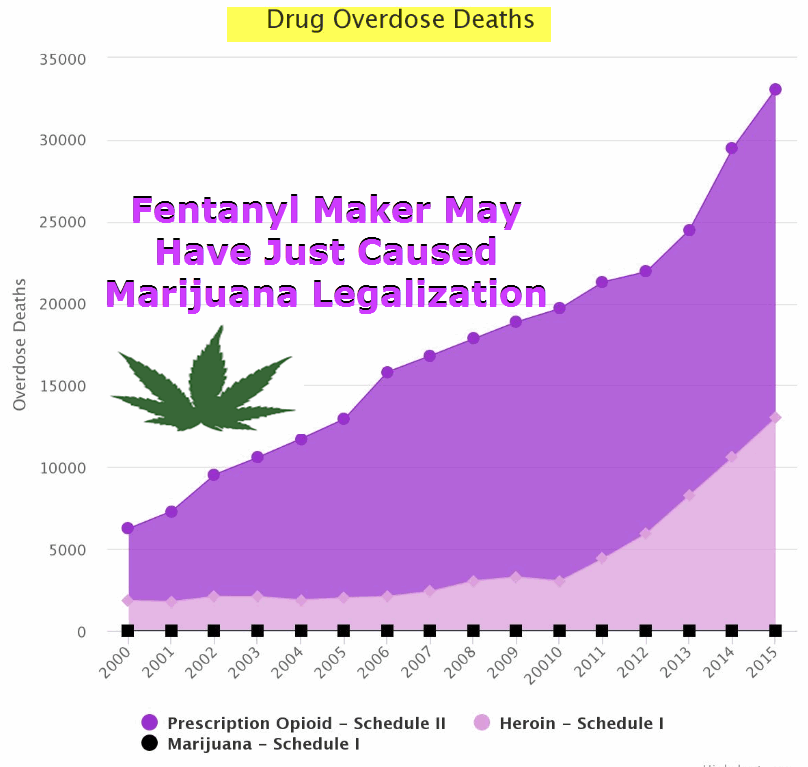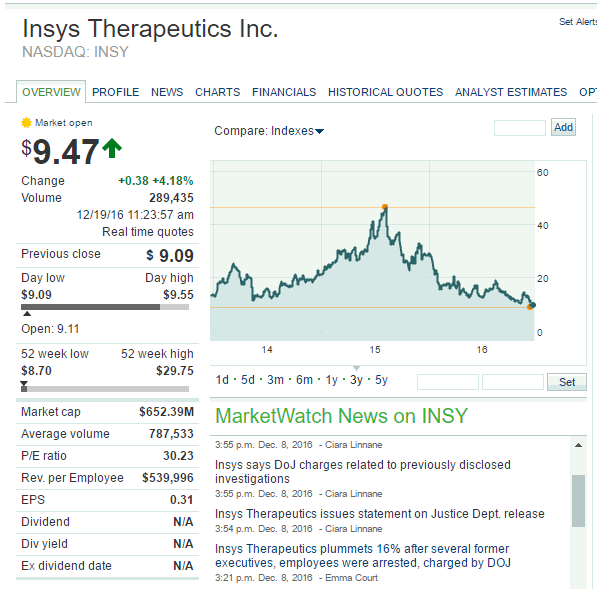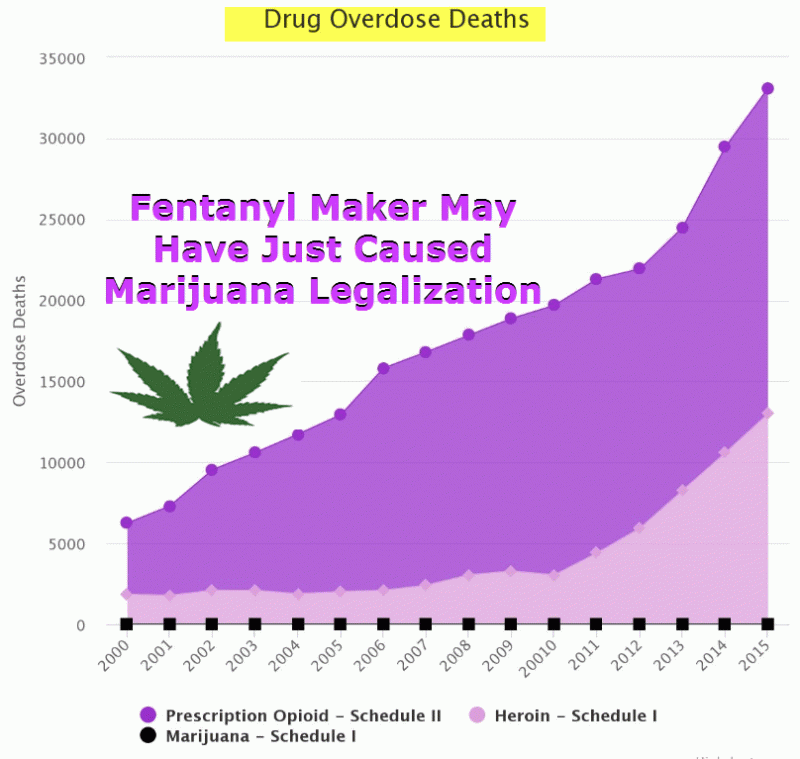Something Smells Fishy: DEA helps synthetic pot from fentanyl company get into legal pot business

While the rest of us are fighting blood sweat and tears to legalize marijuana with no luck from the DEA, guess what they’ve been up to?
InSys Therapeutic has been on the hot seat the past few weeks. InSys, the same company that manufactures the super potent painkiller fentanyl, was just able to cross major hurdles by getting a few steps ahead to the legal marijuana industry, thanks to the DEA. In case you’ve forgotten, InSys is the same company that contributed $500,000 to fund an anti-marijuana legalization committee called the Arizonans for Responsible Drug Policy in Arizona last year.
Not only has been InSys donating money to campaigns that oppose marijuana legalization; they’ve also been actively advocating marijuana restrictions especially on medicines that use THC, the main psychoactive ingredient.

The Arizona-based company is working on a new product called Syndros, a liquid containing synthetic delta-9-THC (the same cannabinoid they’ve been working to restrict). The DEA, which has just approved Syndros, announced on March 23 that it will be listed as a Schedule II controlled substance, while marijuana remains a Schedule I! This means that DEA just said that Syndros is less harmful than cannabis, when we all know the shit that’s gone down when people take synthetic versions of pot.
Here’s another shady thing about this deal: The DEA made an announcement about Syndros, saying that it has a “high potential for abuse” and that users are at “an increased risk for experiencing serious adverse events” which “may potentially result in an overdose”.
According to JP Holyoak, chair of the Campaign to Regulate Marijuana Like Alcohol in Arizona, InSys has been funding the opposition with the intent ““to kill a non-pharmaceutical market for marijuana in order to line their own pockets,” based on an article on the Washington Post. In 2007, InSys also filed a disclosure statement with the Securities and Exchange Commission, which states that legalizing cannabis would threaten their products and profits. The statement said:
“If marijuana or non-synthetic cannabinoids were legalized in the United States, the market for dronabinol product sales would likely be significantly reduced and our ability to generate revenue and our business prospects would be materially adversely affected.”
Aside from the news on Syndros, health officials and lawmakers have been working to ban synthetic forms of marijuana such as Spice and K2 which have resulted in overdoses and deaths around the country. On the other hand, marijuana still has had ZERO overdoses and it still remains on the Schedule 1 classification.
Reports also say that InSys is working to develop a drug that will combat opioid overdoses.
InSys Under Investigation

InSys is currently under investigation for the illegal marketing of fentanyl, the opioid which is considered to be 50 times more potent than heroin. Fentanyl is linked to the death of artist Prince last year.
In December 2016, many of the company’s executives were arrested; the CEO was also forced to resign because the company faced charges for using speakers fees to lure doctors to prescribing Subsys, a medicine they designed for cancer patients, which contains fentanyl.
“You have a company using profits from the sale of what has been called ‘the most potent and dangerous opioid on the market’ to prevent adults from using a far less harmful substance,” Holyoak said.
It’s evident that in the world we live in today where people can grow their own medicine, it would naturally ruffle the feathers of big pharma companies just like InSys because it threatens their revenue. According to Kevin Gallagher of the Cannabis Business Alliance and Craft Concentrates, the interests of big pharma may be surprised by the persistence of cannabis advocates as well as patients.
“This is a completely unique substance that is so readily available, and it’s so easy to take advantage of its healing nature, … it’ll be very interesting to see how that plays out,” Gallagher said in an interview with Westword.
“These pharmaceutical companies still think they’re going to win the battle in creating essentially fake cannabis and having to even compete with the real cannabis industry, but they’re not looking at the effects of certain terpenes or certain cannabinoids,” he adds.
OTHER STORIES YOU MAY ENJOY...
OPIATES AND CANNABIS TREATMENTS, CLICK HERE.








